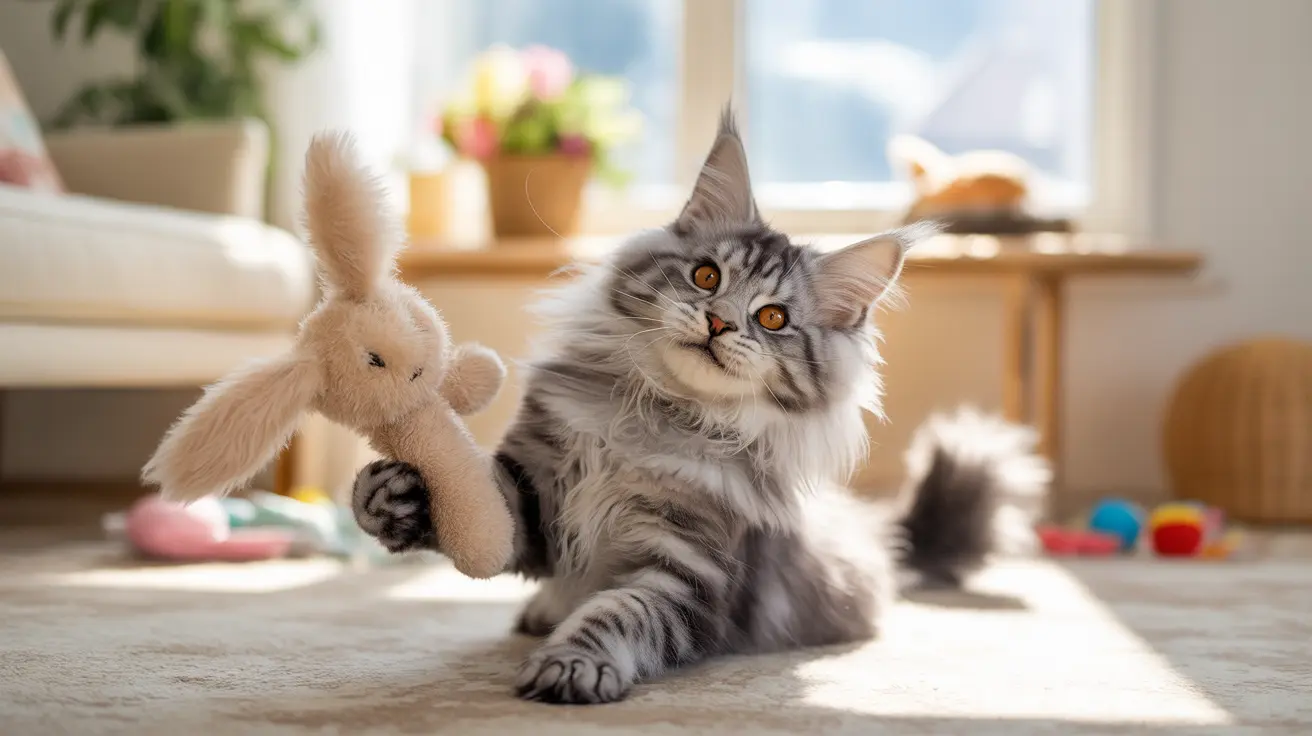Understanding Cat Humping Behavior
Cat humping typically involves mounting behavior where your cat grabs onto an object, person, or another animal with their front legs while making rhythmic thrusting motions. This behavior can occur in cats of any gender or age, whether they're fixed or not.
During these episodes, cats might also display other behaviors such as excessive purring, kneading, or specific vocalizations. While it might seem concerning, it's important to understand that this is usually a natural behavior with specific underlying causes.
Common Reasons Behind Cat Humping
Hormonal Influences
The most straightforward explanation for humping behavior, especially in intact cats, is hormonal drive. Even after spaying or neutering, some cats may continue this behavior due to residual hormones or established habits.
Stress and Anxiety
Many cats use humping as a self-soothing mechanism when feeling stressed or anxious. Common triggers include:
- Changes in the household
- New pets or family members
- Moving to a new home
- Changes in routine
- Environmental stressors
Medical Issues
Sometimes, excessive humping can indicate underlying medical conditions such as:
- Urinary tract infections
- Skin irritations
- Hormonal imbalances
- Neurological issues
Social Dynamics
In multi-cat households, humping might be used as a way to establish social hierarchy or express dominance. This behavior isn't necessarily aggressive but should be monitored to prevent conflicts between cats.
Managing and Preventing Cat Humping
If your cat's humping behavior becomes concerning, consider these management strategies:
Environmental Enrichment
Provide plenty of environmental stimulation through:
- Interactive toys
- Climbing structures
- Puzzle feeders
- Regular play sessions
- Window perches for entertainment
Stress Reduction
Create a calm environment by:
- Maintaining consistent routines
- Providing multiple resources (litter boxes, food bowls, etc.)
- Using calming pheromone products
- Creating quiet spaces for retreat
Professional Help
Consider seeking professional assistance if the behavior persists or causes concern. A veterinarian can rule out medical issues, while a certified animal behaviorist can help develop a management plan.
Frequently Asked Questions
Why do cats hump even after being neutered or spayed?
Cats may continue humping after being fixed due to learned behavior, residual hormones, stress relief, or habit. The behavior isn't always sexual in nature and can persist as a comfort mechanism.
Can stress or boredom cause a cat to hump objects or people?
Yes, stress and boredom are common causes of humping behavior in cats. This can be their way of relieving tension or seeking attention when understimulated.
Is cat humping always related to sexual behavior or hormones?
No, cat humping isn't always sexual. While hormones can play a role, cats may hump due to stress, anxiety, medical issues, or social dynamics within the household.
How can I stop my cat from humping furniture, toys, or other pets?
Address the behavior through environmental enrichment, stress reduction, and positive reinforcement. Redirect your cat's attention to appropriate activities and ensure they get plenty of exercise and mental stimulation.
When should I take my cat to the vet about humping behavior?
Consult a veterinarian if the humping behavior is sudden, excessive, or accompanied by other concerning symptoms like changes in appetite, urination habits, or general behavior.
Remember, while cat humping might be embarrassing or concerning for owners, it's usually manageable with the right approach and understanding. Focus on identifying the underlying cause and implementing appropriate solutions to help your feline friend live a happy, balanced life.






